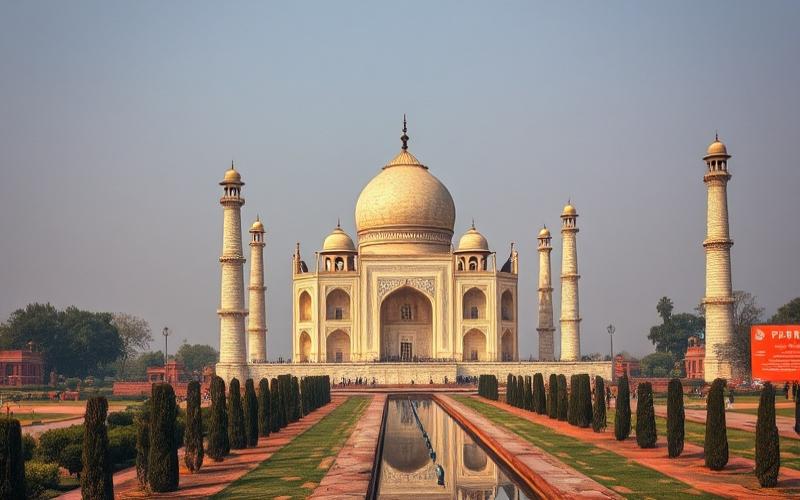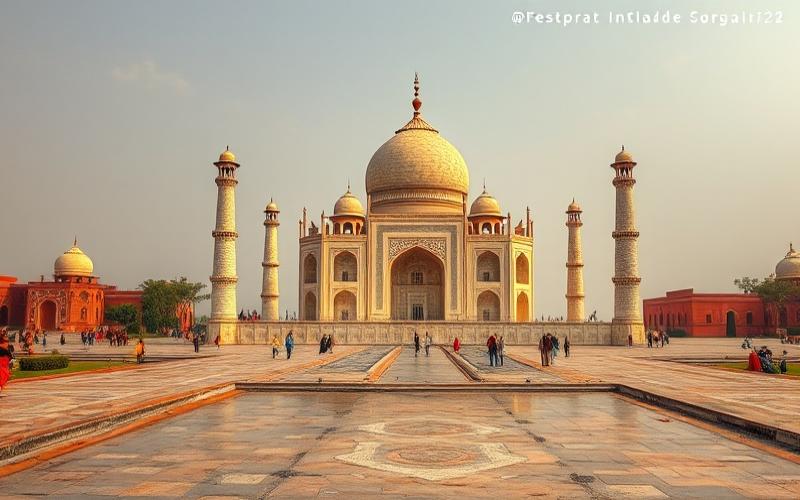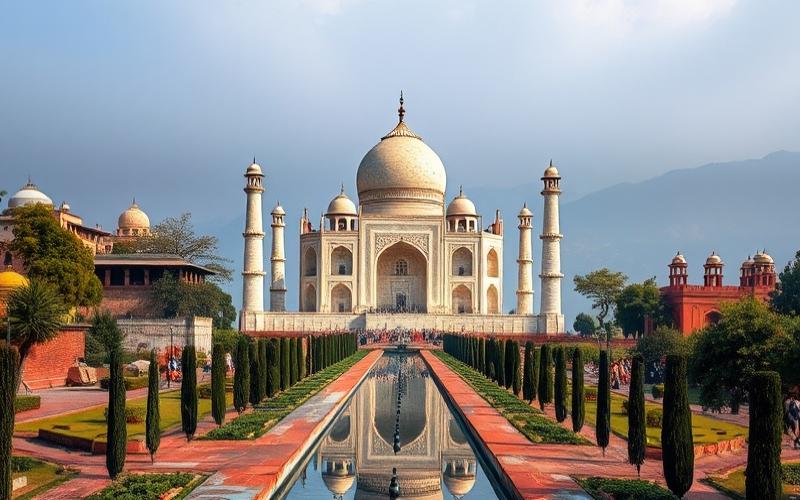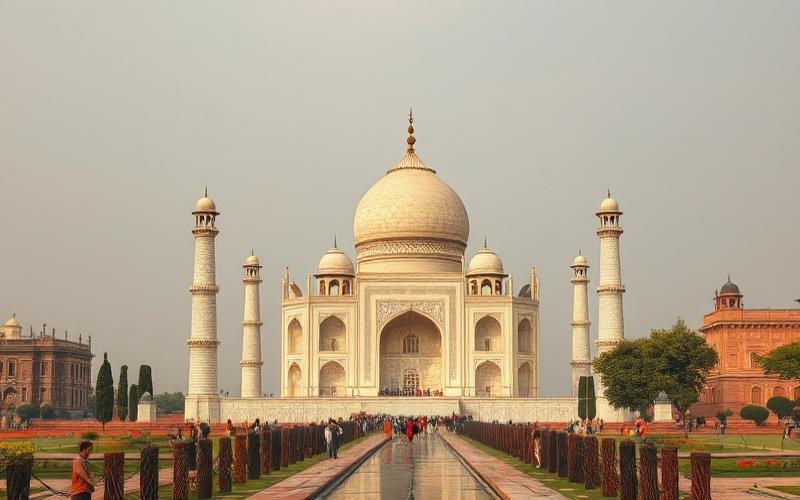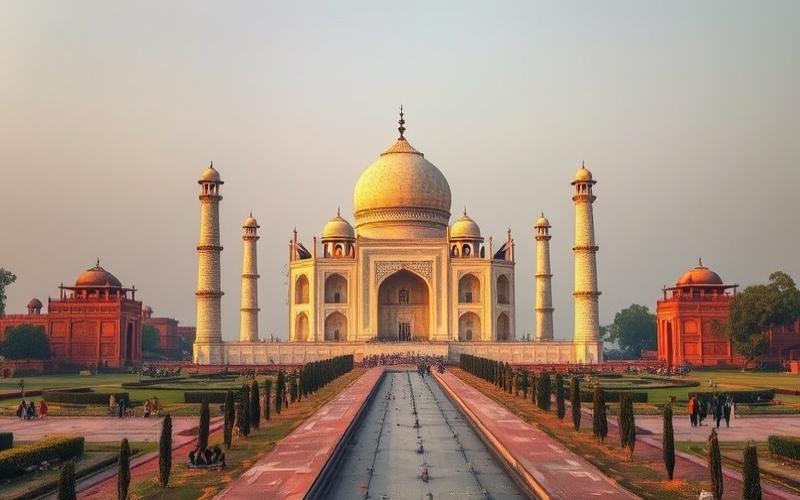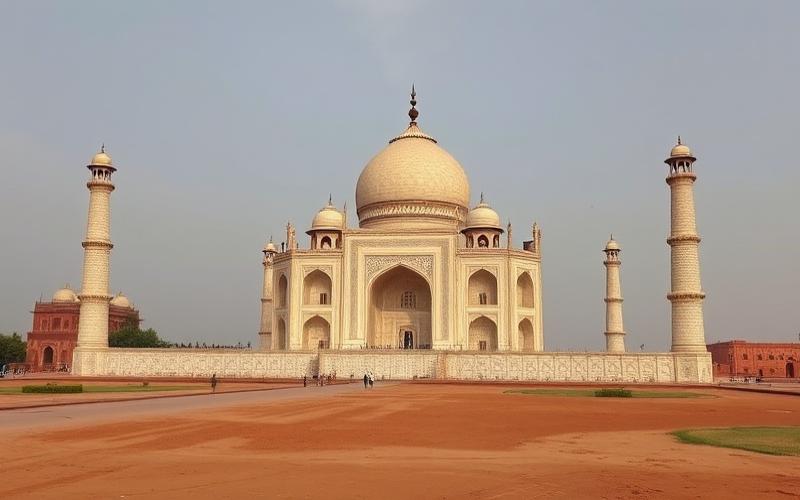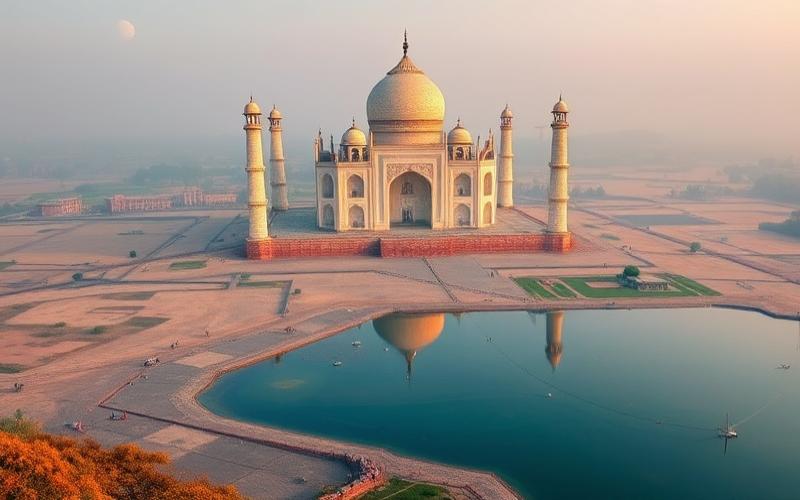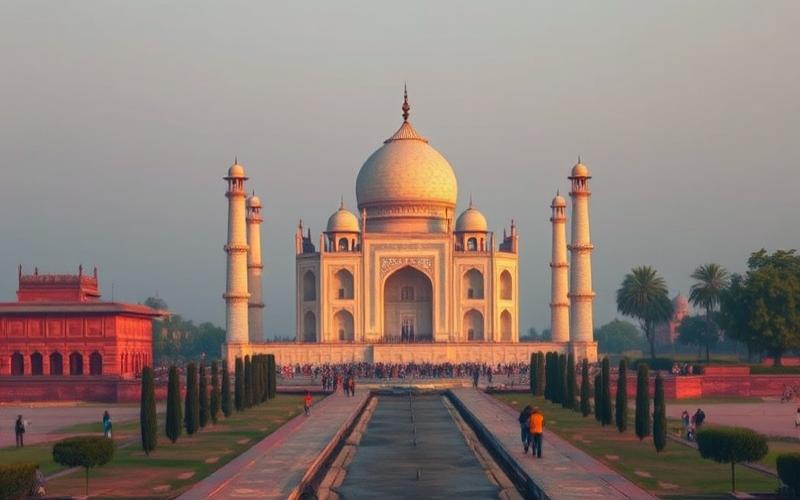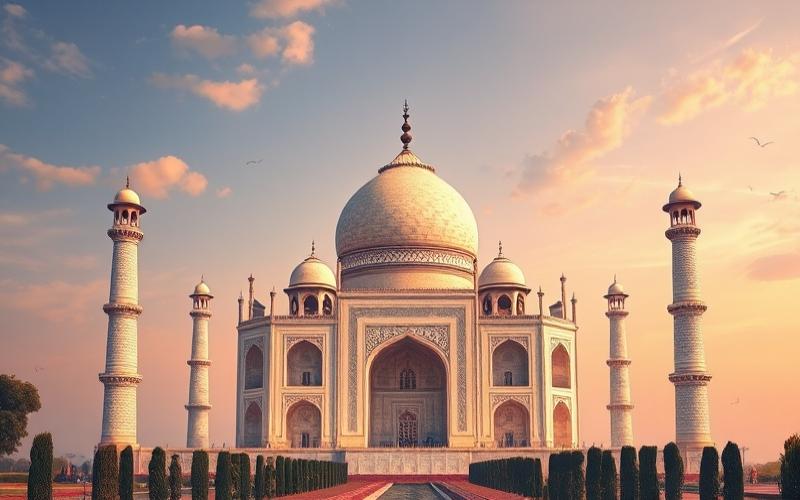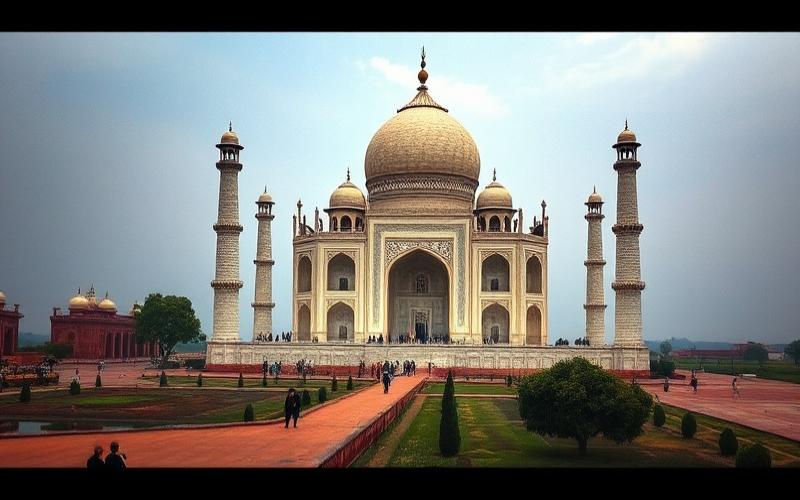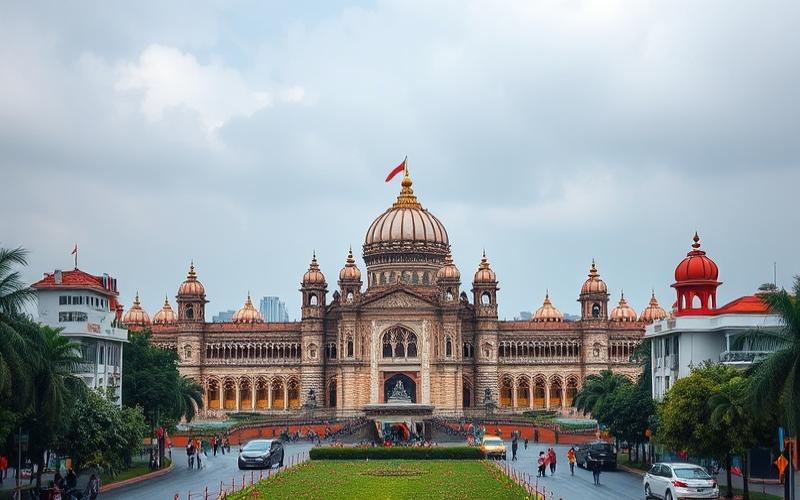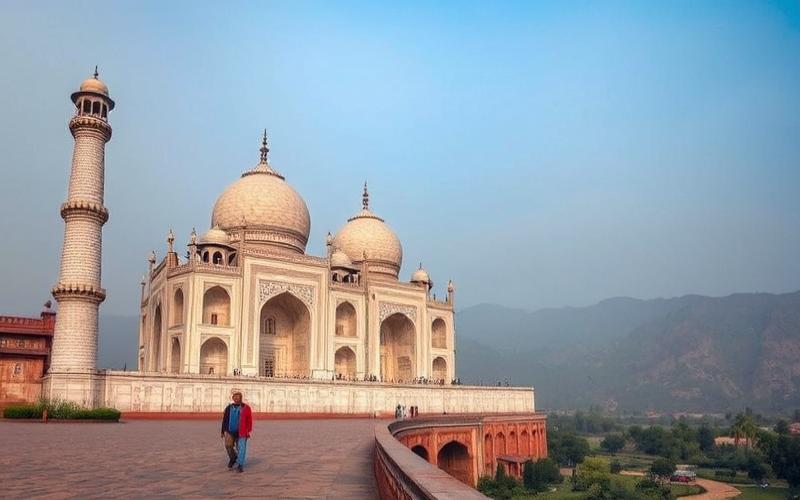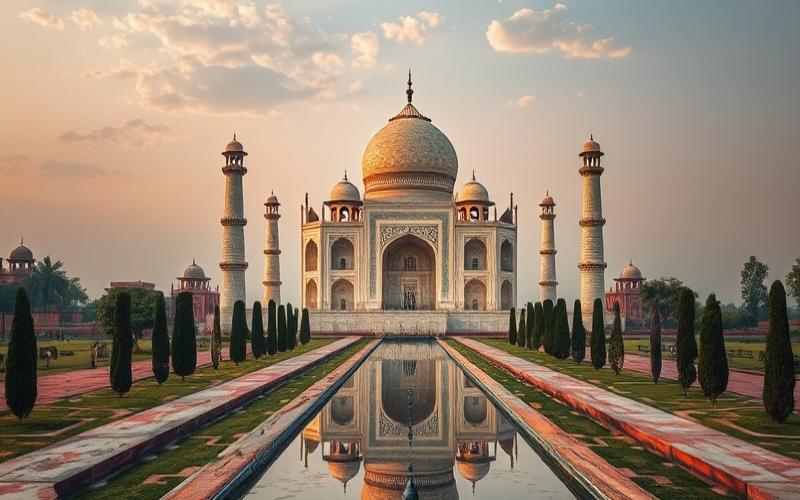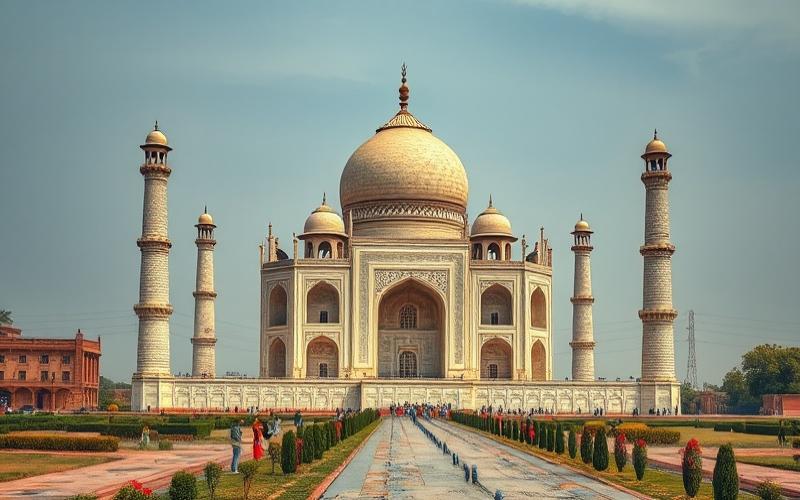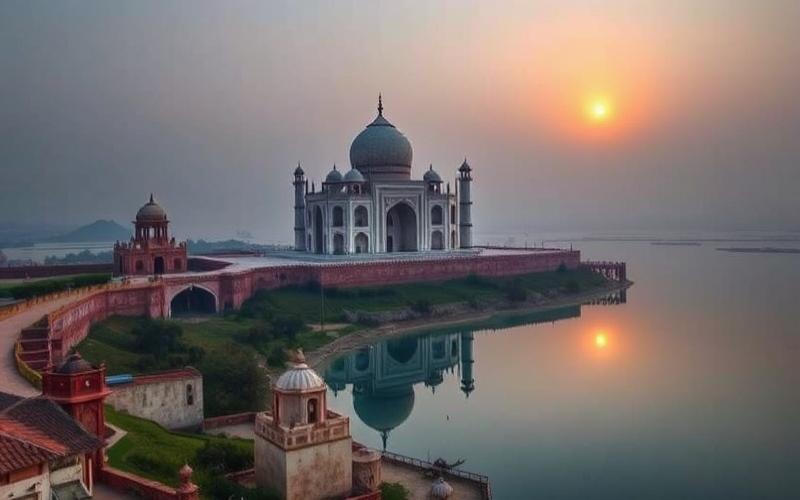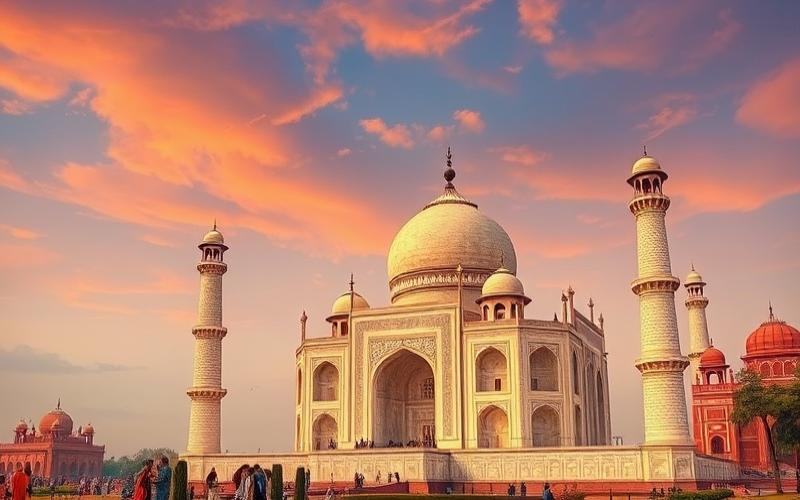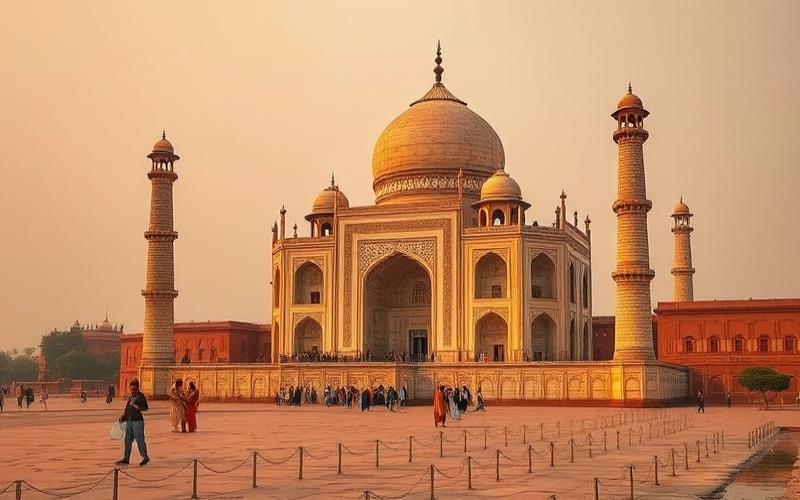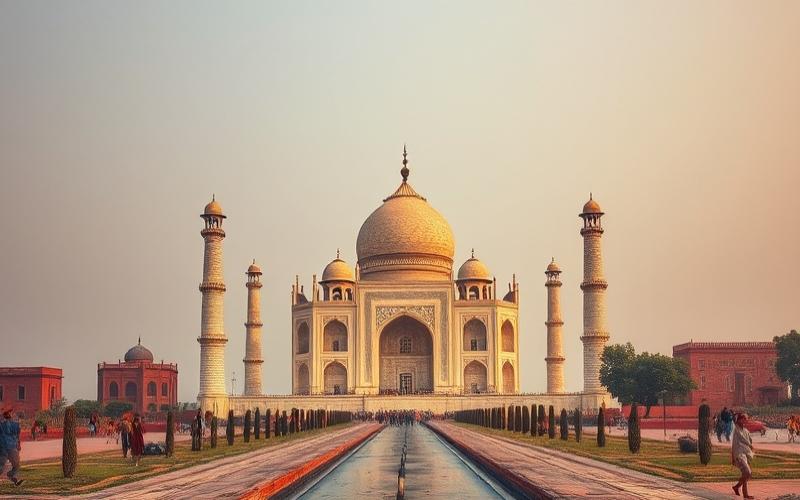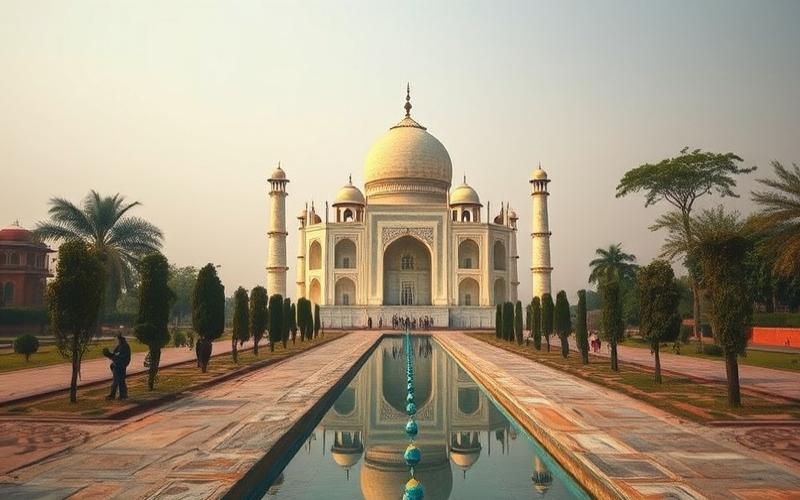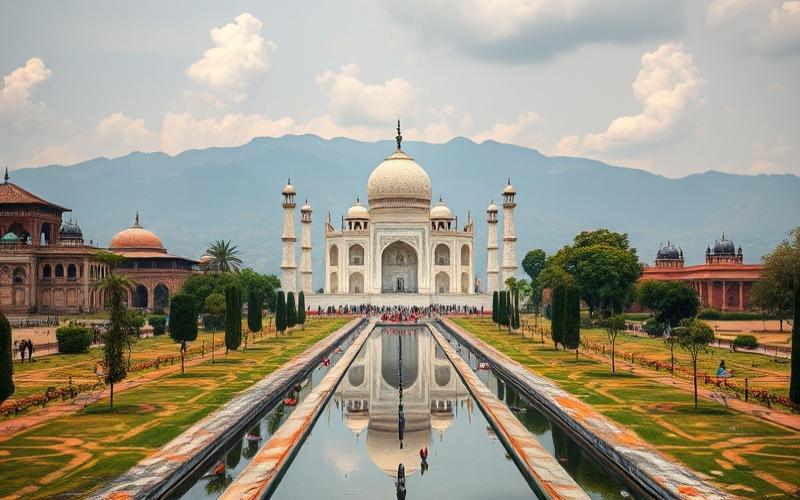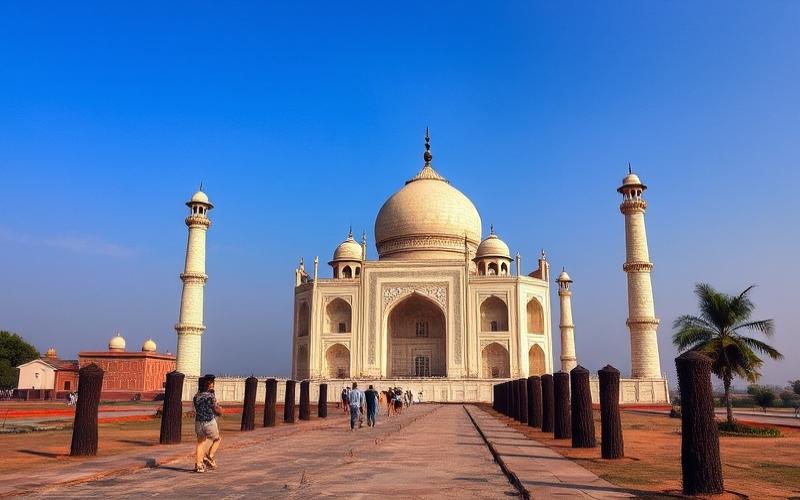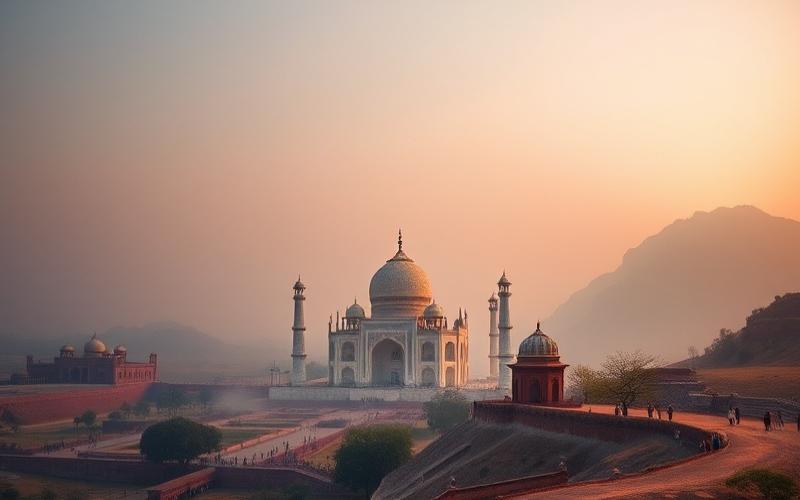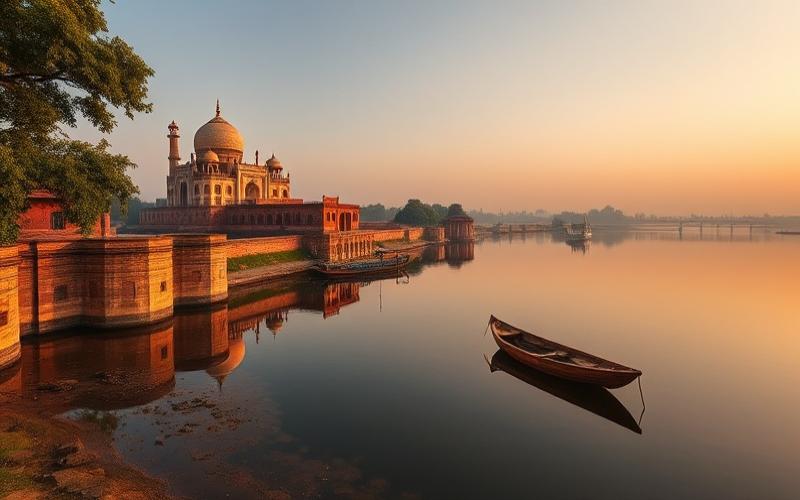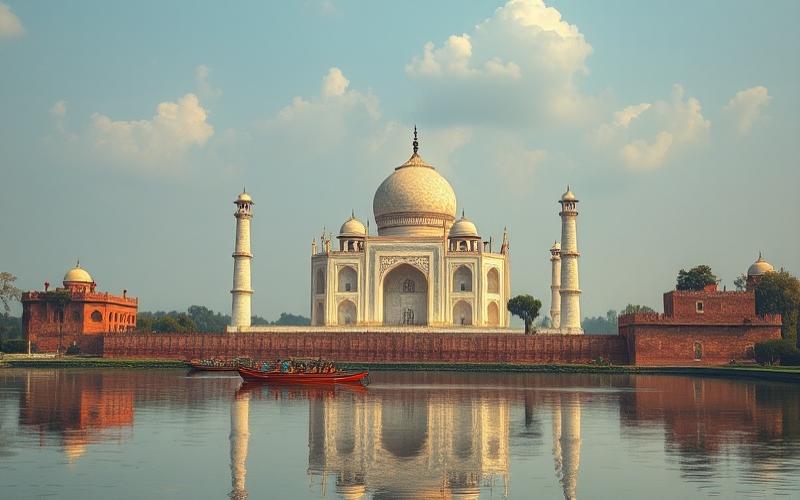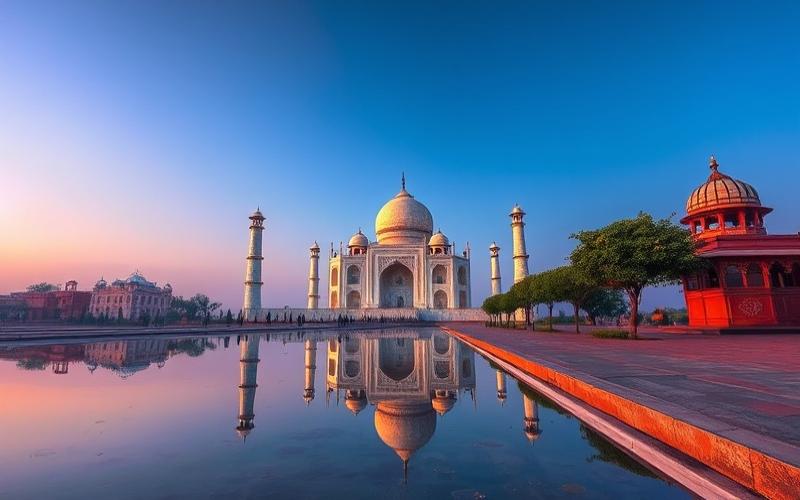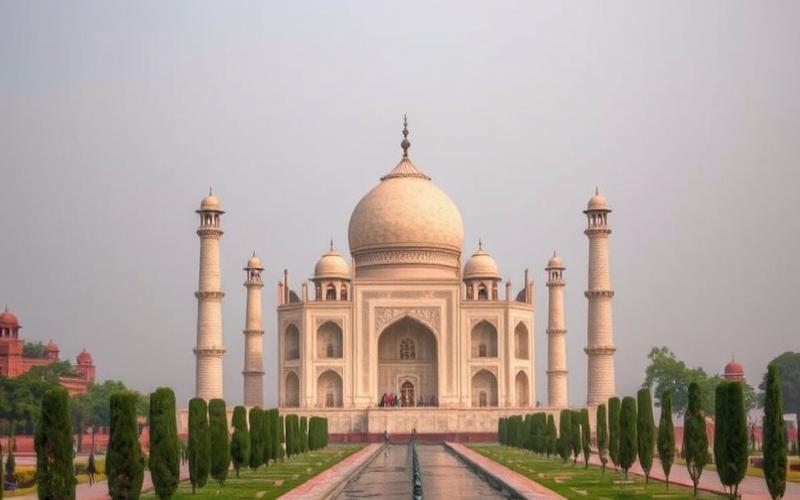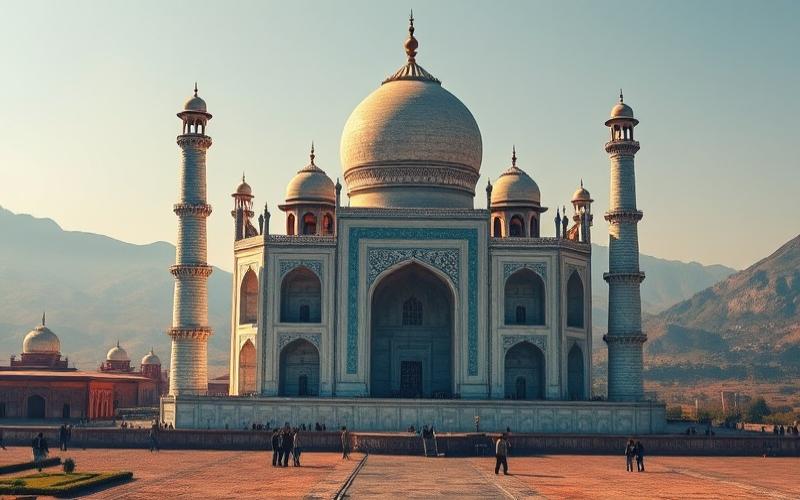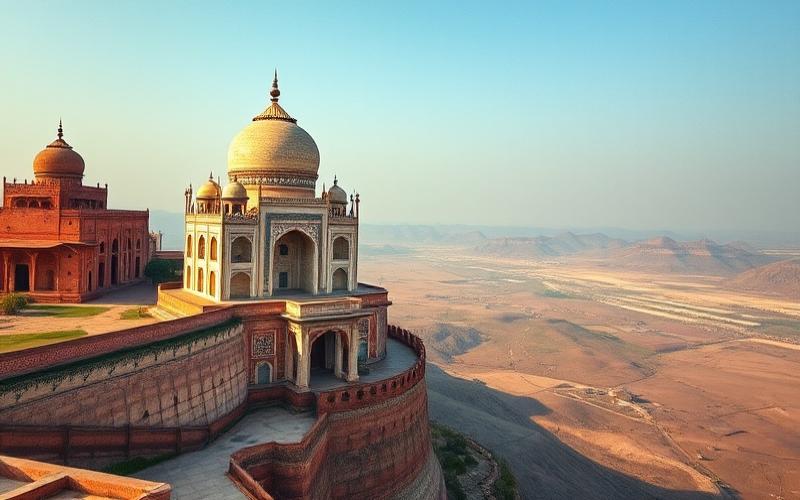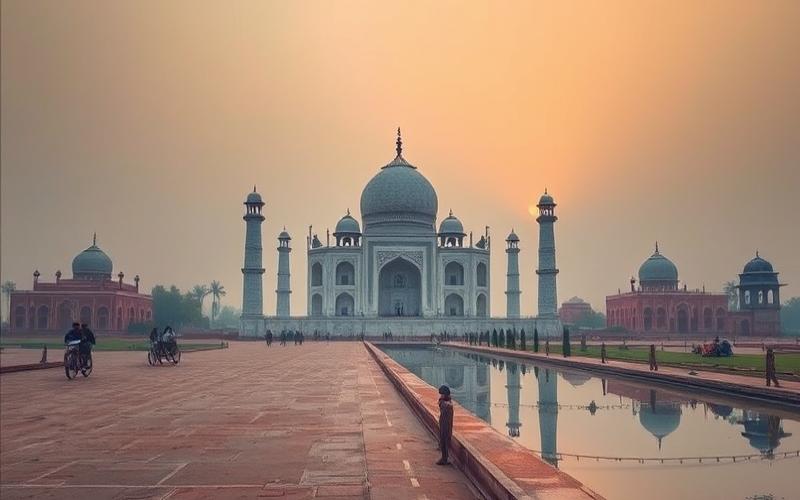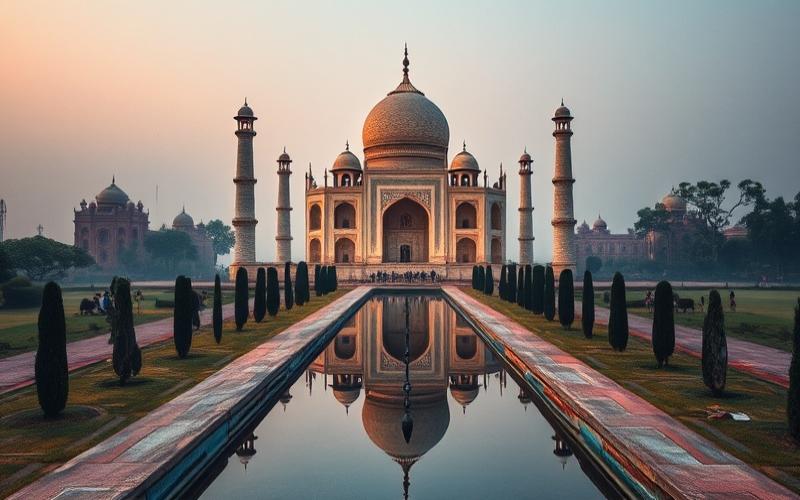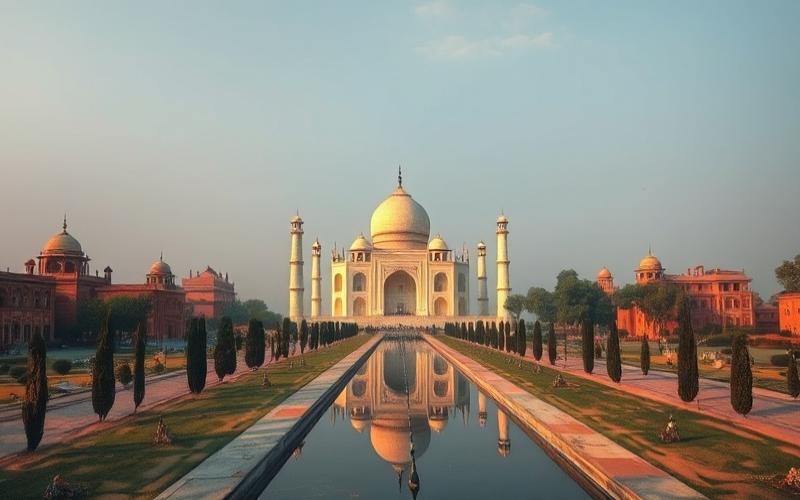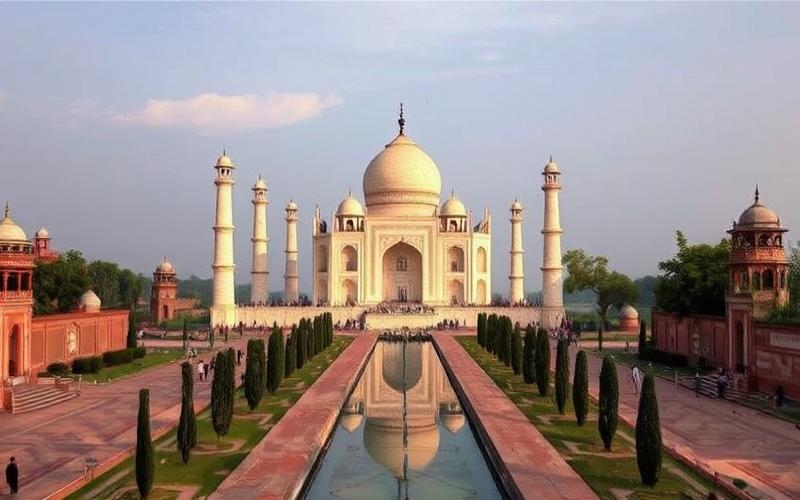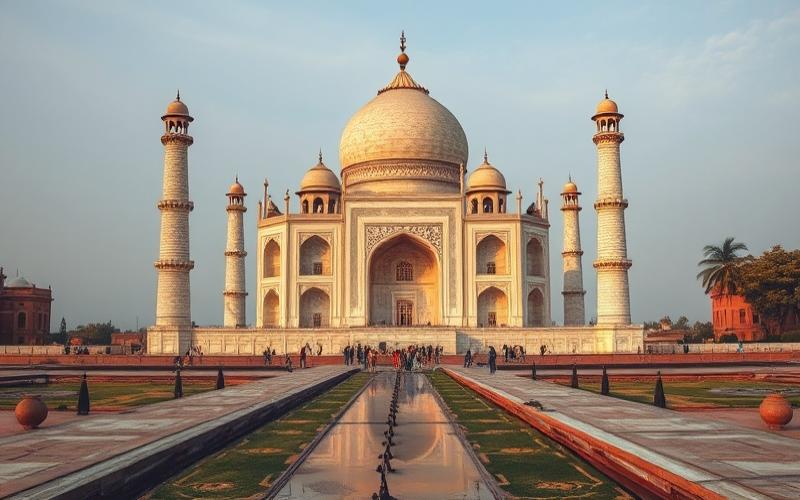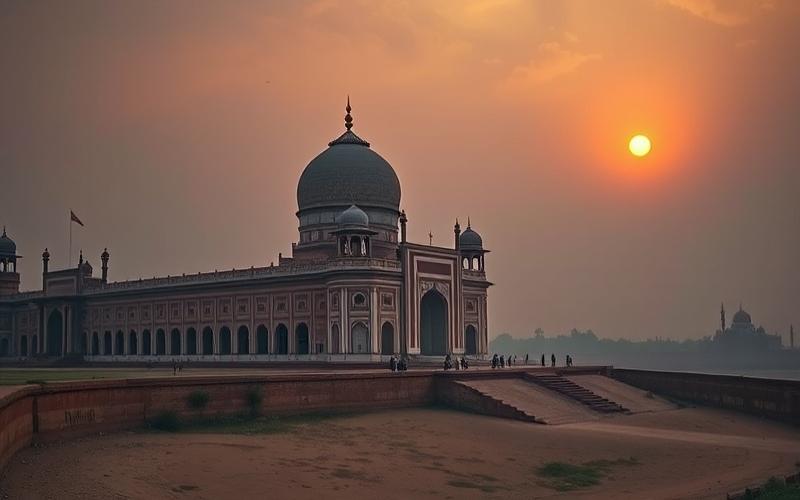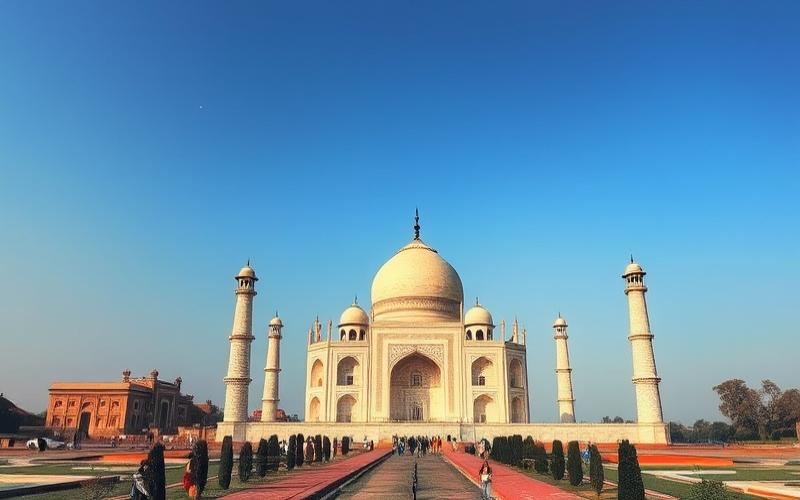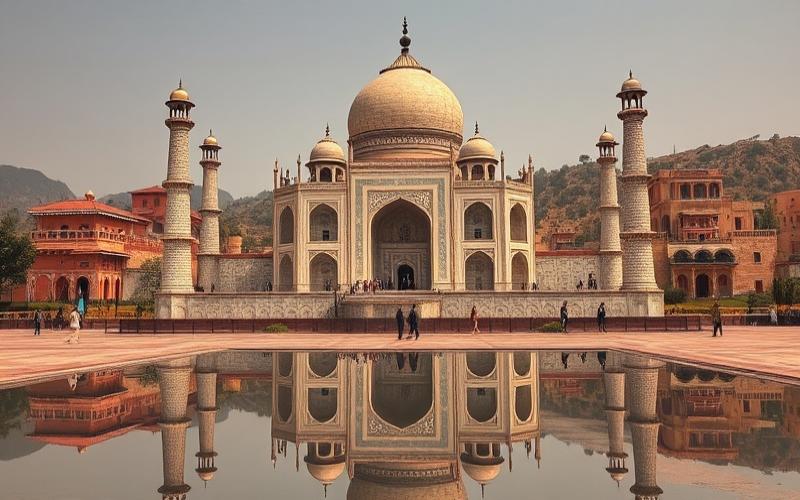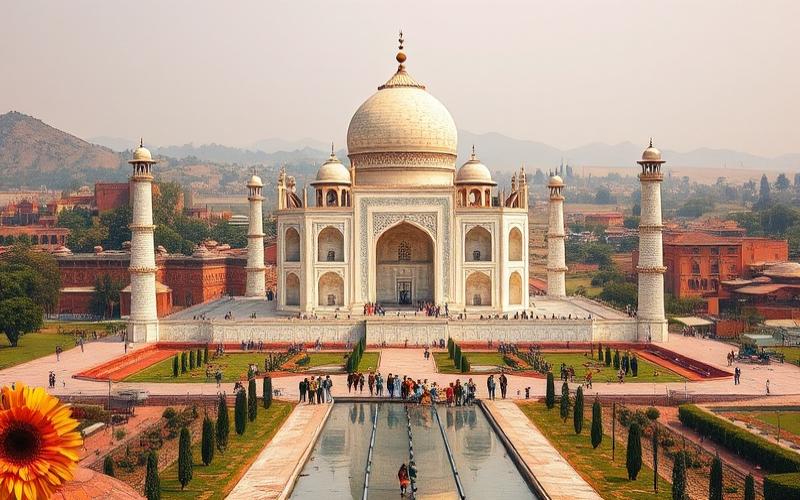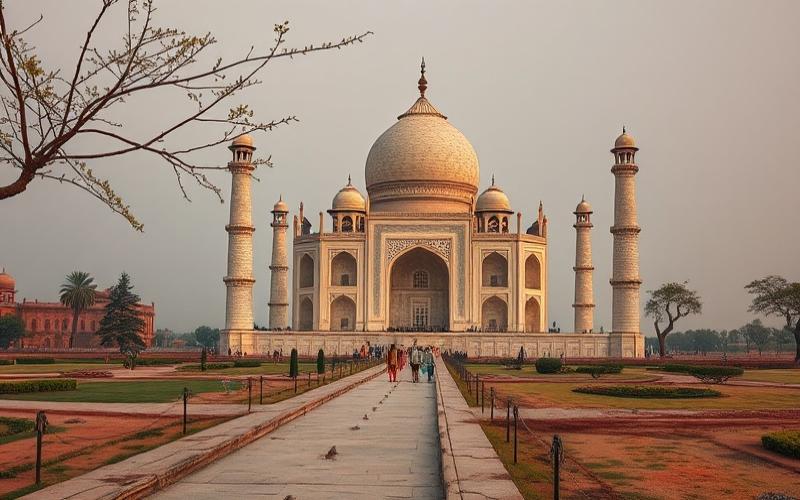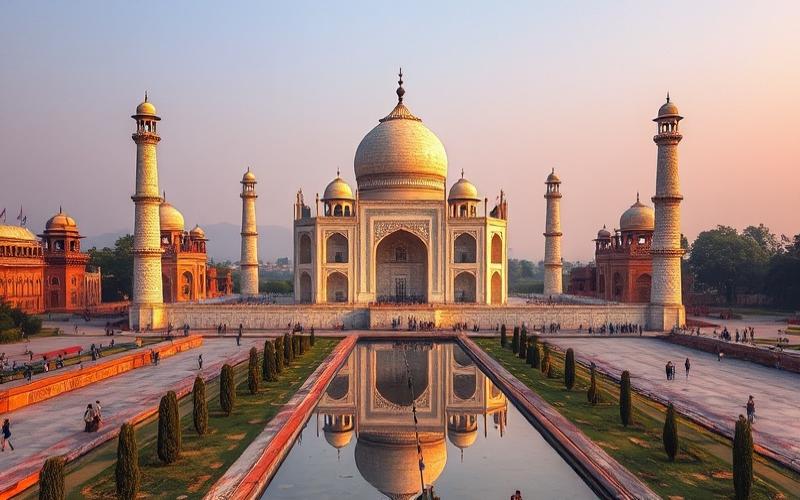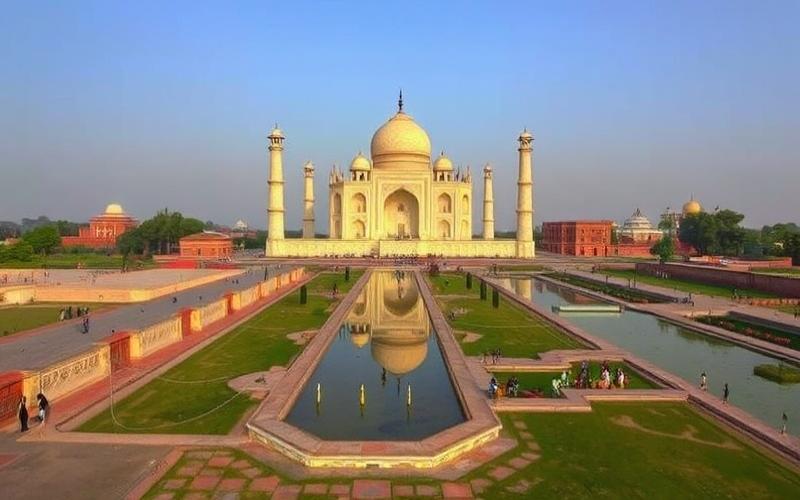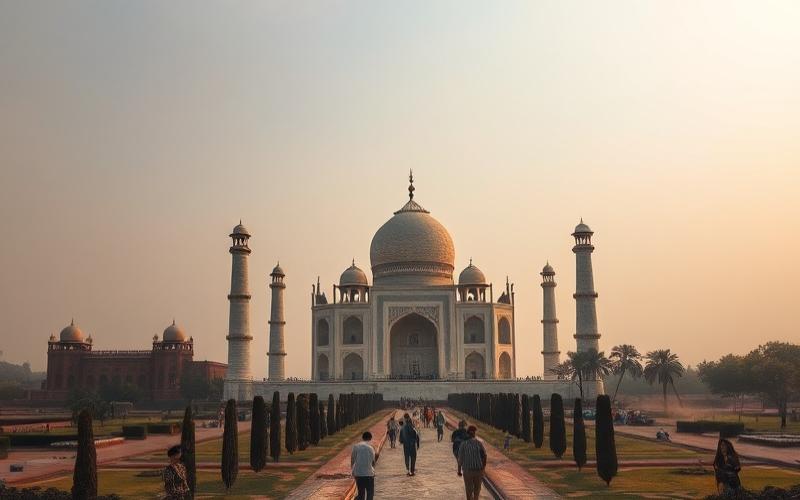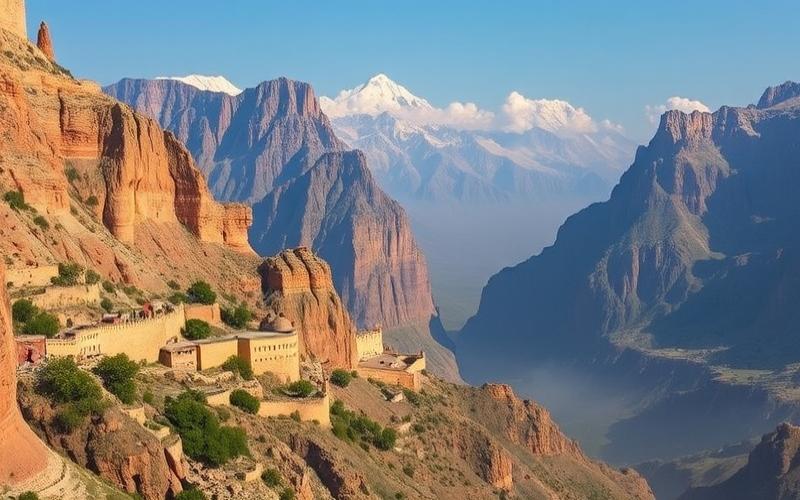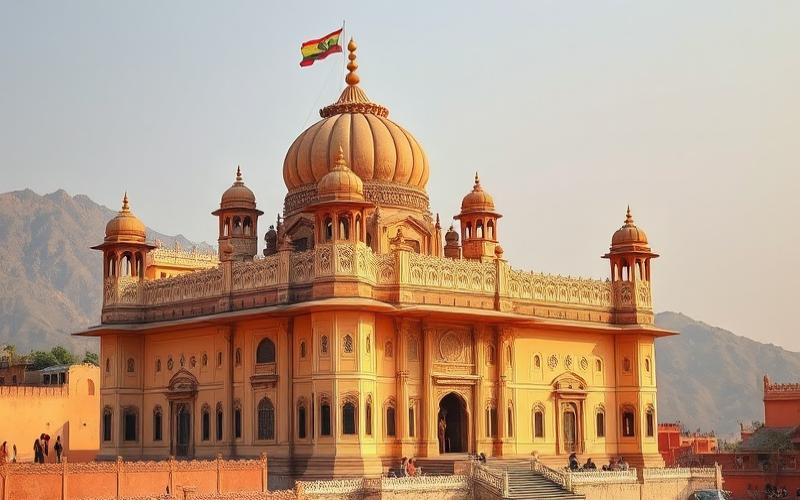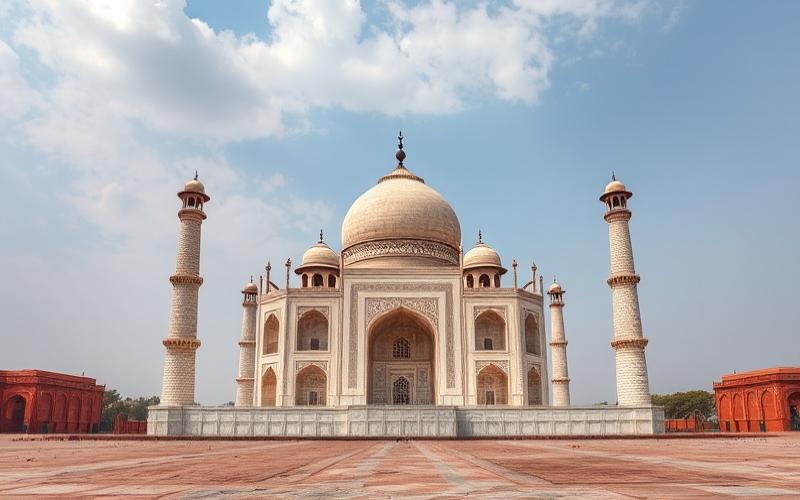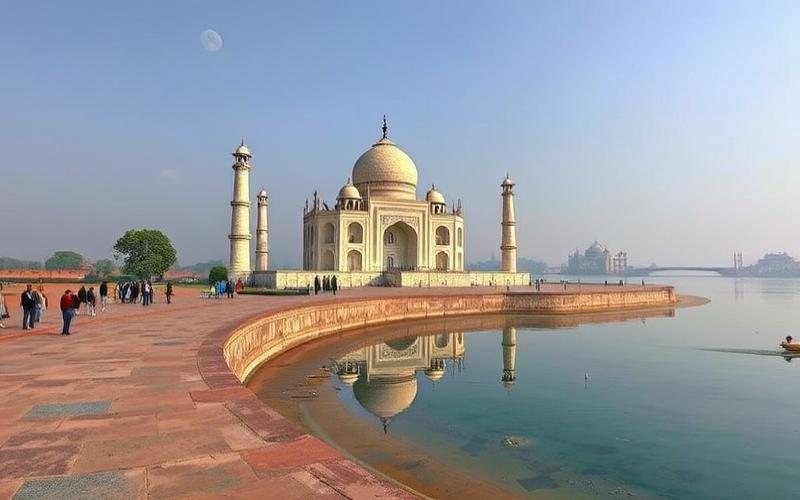
 Published on and written by Cyril Jarnias
Published on and written by Cyril Jarnias
Relocating to India can be a rewarding adventure, but for expatriates, understanding local religious practices is essential for integrating harmoniously into society.
With its mosaic of spiritual traditions, from Hinduism to Sikhism through Buddhism and Islam, India offers a rich panorama of rituals and customs that reflect a vibrant faith.
This guide explores how expatriates can navigate this complex cultural landscape while respecting local sensitivities, providing practical insights into festivals, places of worship, and appropriate behaviors.
Discover how to respectfully participate in Indian religious life and build bridges between your world and that of your new community.
Impact of Local Religious Practices on Daily Life in India
India is characterized by exceptional religious diversity, with each major religion – Hinduism, Islam, Christianity, Sikhism, Buddhism – permeating daily life in specific and profound ways. Religious practices shape the calendar, structure social and family relationships, and influence economic dynamics, particularly in commerce and food sectors.
Comparative Table of Daily Influence of Major Religions in India
| Religion | Daily Practices | Impact on School/Work Calendar | Rituals and Social Interactions | Places of Worship and Community Life |
|---|---|---|---|---|
| Hinduism | Domestic puja, offerings, family rituals, fasting, festival celebrations (Diwali, Holi) | Numerous national and regional holidays, schedule adjustments during Navratri, Holi, Diwali | Daily family rituals, caste importance, festivals bringing together families and neighbors | Temples as social centers, organization of fairs, markets around temples |
| Islam | Five daily prayers, Ramadan fasting, Eid celebrations | Work schedule adjustments during Ramadan, holidays for Eid | Large family gatherings during Eid, community solidarity during Ramadan | Mosques as meeting points, importance of halal markets |
| Christianity | Sunday mass, Christmas and Easter celebrations, charitable works | Christmas and Easter sometimes local holidays, Christian schools closed during major festivals | Family and parish celebrations, importance of support networks | Churches as community centers, role in education and health |
| Sikhism | Daily prayers, community service (seva), festivals (Gurpurab, Vaisakhi) | Closure of businesses and schools in Punjab during major festivals | Free community meals (langar), social equality within gurdwara | Gurdwaras open to all, social support, food distribution |
| Buddhism | Meditation, participation in retreats, festivals (Vesak) | Minimal national impact, but regional presence (Ladakh, Maharashtra) | Interactions focused on peace and meditation, local festivals | Monasteries as gathering and teaching places |
Practical Examples of Influence on Daily Life
Religious Festivals and School/Work Calendar:
- During Diwali (Hinduism), many businesses and schools close for several days, families gather, and markets experience peak activity.
- Ramadan (Islam) modifies work schedules in some regions; meal rhythms change, restaurants offer specific iftar menus.
- Christmas and Easter (Christianity) are celebrated mainly in the South and Northeast, with Christian school closures and organization of markets and charitable activities.
- Vaisakhi (Sikhism) features processions, dances, and business closures in Punjab.
Fasting Days and Meal/Work Schedules:
- Hindus practice fasting during Ekadasi or Navratri, adapting meals and sometimes work schedules.
- Muslims fast from dawn to sunset during Ramadan; work hours are often reduced or adjusted.
- Among Buddhists, certain fasting or collective meditation days mark a pause in regular activities.
Rituals and Celebrations, Social and Family Interactions:
- Hindu domestic rituals are often led by the woman of the house, strengthening family cohesion.
- Muslim and Christian festivals bring together extended families, neighbors, and community members around meals and prayers.
- Sikh langar (free meals in gurdwaras) promotes social mixing and local solidarity.
Role of Places of Worship:
- Temples, mosques, churches, gurdwaras, and monasteries serve as community hubs, organizing social assistance, education, and economic activities (markets, festivals, food distribution).
- Around holy sites (Varanasi for Hinduism, Amritsar for Sikhism), many shops, hotels, and restaurants operate according to pilgrimage rhythms.
How Expatriates Adapt and Testimonials
Expatriates often note the importance of adapting their schedules to local holidays and observing dietary restrictions (for example, avoiding beef in Hindu areas, pork in Muslim areas).
“During Diwali, the company closes for three days. Colleagues invite me to share family celebrations; it’s a powerful moment of integration.”
A French expatriate based in Bangalore
“During Ramadan, my Muslim colleagues adjust their schedules, and the office atmosphere changes: quieter during the day, more lively in the evening at iftar.”
A German expatriate in Mumbai
“Being attentive to religious festivals and family rituals is essential to avoid misunderstandings and build trust with local teams.”
An Australian manager
List of Best Practices for Expatriates
- Learn about major festivals and holidays in the region.
- Respect dietary and dress codes when visiting places of worship.
- Adjust your schedule according to major festivals and fasting periods.
- Participate, if invited, in rituals or family meals to foster integration.
- Maintain an attitude of respect and discretion during processions, rituals, or public ceremonies.
Important Highlight
Understanding and respecting local religious practices are essential for living and working peacefully in India. This cultural sensitivity not only helps avoid misunderstandings but also builds authentic connections within Indian society.
Good to Know:
In India, religious practices deeply influence daily life; for example, Hinduism, as the majority religion, structures the year with festivals like Diwali that can alter school and work schedules. Islam, with its fasting days during Ramadan, adjusts meal and work timetables, while Christianity and Sikhism contribute to a diversity of celebrations integrated into social life, often changing commercial or professional availability during Christmas or Vaisakhi. Places of worship, from temples to mosques, are central to communities, influencing local economic dynamics, particularly in the food sector which adapts to religious dietary requirements. Expatriates can enhance their integration by respecting these traditions and participating in celebrations, a gesture often appreciated by locals. A former expatriate recounts how attending a collective prayer in a Sikh gurdwara enriched his understanding of local culture, facilitating his interactions and strengthening social bonds.
Understanding Major Indian Religious Festivals
Diwali (Deepavali) – Festival of Lights
Diwali symbolizes the victory of light over darkness and good over evil. It is the most important festival for many Indians, celebrated by Hindus, Jains, Sikhs, and some Buddhists. It spans 3 to 5 days, typically between October and November.
Religious and Cultural Significance
It commemorates Prince Rama’s return to Ayodhya after his victory over the demon Ravana. It is also a time of renewal and, for some, the beginning of the new year.
Customs and Rituals
- Cleaning and decorating homes with rangolis (colorful patterns)
- Lighting oil lamps (diyas) on windowsills, doors, and family altars
- Sharing festive meals, distributing sweets, exchanging gifts
- Offerings and prayers to Lakshmi, goddess of prosperity
- Fireworks
Regional Differences
- In South India, Diwali often begins with a ritual bath at dawn
- In the West and North, emphasis is on prayers to Lakshmi and gambling games
Social Importance
Diwali brings together families, friends, and neighbors, fostering social cohesion and generosity through almsgiving and invitations.
Tips for Expatriates
- Offer or accept sweets, participate in lighting lamps
- Wear traditional clothing if invited to a celebration
- Avoid black clothing, associated with sadness
Public Services and Transportation
- Closure of many offices, banks, and shops on the main day
- Disrupted traffic in major cities (traffic jams, fireworks, crowded markets)
Holi – Festival of Colors
Holi marks the end of winter and the arrival of spring, celebrated mainly by Hindus but open to all.
Religious and Cultural Significance
It celebrates the victory of good over evil, referencing the legend of Prahlad and Holika.
Customs and Rituals
- Throwing colored powders (gulal) and water in the streets
- Dancing, singing, and outdoor music
- Sharing sweet treats like gujiya
- Lighting bonfires the night before to symbolize the destruction of evil
Regional Differences
- In Mathura and Vrindavan, celebrations sometimes last over a week
- In the south, Holi is more subdued and focused on religious rituals
Social Importance
Holi transcends castes, ages, and religions, strengthening social inclusion.
Tips for Expatriates
- Wear simple clothing that can be stained
- Respect people who do not wish to participate
- Protect your personal belongings and eyes from powder
Public Services and Transportation
- Closure of many shops and schools
- Reduced public transport in some cities, streets closed to traffic
Eid al-Fitr – End of Ramadan
Eid al-Fitr is celebrated by the Muslim community at the end of the Ramadan fasting month.
Religious and Cultural Significance
It marks gratitude to Allah for the strength received during Ramadan and sharing with the less fortunate.
Customs and Rituals
- Collective prayers in mosques or public places
- Obligatory charity donation (zakat al-fitr)
- Family visits, sharing traditional dishes like seviyan (sweet vermicelli)
- Exchanging greetings: “Eid Mubarak”
Regional Differences
- Dishes and desserts vary by region (biryani, kebabs, etc.)
- In Hyderabad and Lucknow, festivities are particularly lavish
Social Importance
Strengthens solidarity, charity, and family bonds.
Tips for Expatriates
- Extend greetings to Muslim colleagues or neighbors
- Avoid eating in public on Eid morning near prayer areas
- Accept invitations to share meals if offered
Public Services and Transportation
- Closure of Muslim institutions, some schools and shops
- Heavy crowds near mosques, possible traffic delays
Christmas
Christmas is celebrated by the Christian minority but also more widely in major cities.
Religious and Cultural Significance
Celebration of the birth of Jesus Christ.
Customs and Rituals
- Midnight masses in churches
- Decorating homes and Christmas trees
- Gift distribution and sharing cakes (especially plum cake in the south)
- Christmas carols in Christian neighborhoods
Regional Differences
- Christmas is particularly festive in Kerala, Goa, Mumbai, and the Northeast
- In Goa, processions and fireworks are common
Social Importance
Promotes conviviality, tolerance, and interreligious respect.
Tips for Expatriates
- Visit a local church to attend mass
- Participate in meals or community events if invited
- A simple “Merry Christmas” is appreciated
Public Services and Transportation
- Official holiday throughout India; some administrations and schools closed
- Transport generally functional, but Christian neighborhoods may be lively
| Festival | Main Religion | Season | Key Rituals | Impact on Daily Life |
|---|---|---|---|---|
| Diwali | Hinduism, Jainism, Sikhism | Oct.-Nov. | Lamps, prayers, fireworks | Closures, heavy traffic |
| Holi | Hinduism | March | Colored powders, dances, bonfires | Closures, festive streets |
| Eid al-Fitr | Islam | Variable | Prayers, donations, festive meals | Localized closures, crowds |
| Christmas | Christianism | December 25 | Masses, decorations, gift exchanges | Closures, lively neighborhoods |
General Tips for Expatriates
- Always research the meaning of a festival before participating
- Adopt respectful and appropriate attire
- Avoid criticizing or joking about religious rituals
- Expect schedule changes, closures, or delays in public services and transportation during major festivals
Participating or showing respect during Indian festivals is an excellent way to integrate, build connections, and better understand the country’s cultural richness.
Good to Know:
In India, religious festivals are important occasions with deep cultural and community dimensions. Diwali, the festival of lights, celebrates the triumph of good over evil with house decoration rituals and sweet exchanges, often accompanied by fireworks, though practices and restrictions vary regionally. Holi, the festival of colors, marks the arrival of spring with colored powder throwing, encouraging joy and social equality; however, celebrations can vary from region to region. Eid al-Fitr, concluding Ramadan, emphasizes charity and meal sharing, influencing office closures while family and community are honored. Christmas, though celebrated by a minority, brings many Indians together around festive meals and vibrant decorations. Expatriates should show respect and enthusiasm, potentially participating in celebrations with local friends or respecting customs like removing shoes before entering a home. During these festivals, expect transportation disruptions and closures of some public services, so plan your travel accordingly.
Appropriate Behavior Codes for Expatriates in India
Respect for Religious Particularities
- Always remove shoes before entering a place of worship (Hindu temple, mosque, some homes). This gesture symbolizes purity and respect for sacred space. For example, when visiting the Golden Temple in Amritsar, it is mandatory to walk barefoot and cover your head.
- Avoid touching statues, altars, or religious objects, even out of curiosity.
- During religious festivals (Diwali, Holi, Ramadan, etc.), refrain from gestures or remarks that could offend: avoid alcohol or meat consumption in certain contexts, respect fasting periods, and do not interrupt processions or rituals.
- Be particularly vigilant in mixed spaces (Sikh temples, mosques) where specific codes apply: wearing headscarves, gender separation.
Dress Code
- Prefer loose clothing covering legs and shoulders for men and women during religious visits or ceremonies.
- For women, wearing a shawl or scarf to cover the head in Sikh temples or mosques is recommended. Short skirts, shorts, tank tops, and tight clothing should be avoided in these contexts.
- Men should avoid shorts and tank tops, preferring long-sleeved shirts or tunics and trousers.
- In some temples, specific clothing may be provided at the entrance (sarong, scarf).
| Type of Place | Dress Requirement |
|---|---|
| Hindu Temple | Legs and shoulders covered, no leather |
| Mosque | Head covered (women), arms/legs covered |
| Sikh Temple | Head covered for all, bare feet |
| Religious Ceremony | Modest attire, discreet colors, body covered |
Interactions
- Always greet with a respectful gesture, preferably with hands joined (namaste) rather than a handshake.
- Listen carefully to explanations about rituals; ask permission before taking photos or participating in a ceremony.
- Ask questions in an open and respectful manner: “Could you explain this tradition?” or “Are there specific rules to follow here?”
- Avoid debates or criticism about religion or local beliefs.
- Do not interrupt prayers or processions, and maintain a humble attitude.
Sacred Spaces
- Do not cross reserved areas (altars, inner sanctuaries) without being invited.
- Do not touch or move ritual objects (bells, oil lamps, offerings).
- Keep silent or speak quietly, avoid loud laughter or abrupt gestures.
- Respect queues and do not cut in line of worshippers.
- In some temples, entering with personal items (bags, cameras) is prohibited.
Participation and Sensitivity
- Observe first before participating: discreetly imitate worshippers’ gestures if participation is allowed.
- Refrain from public displays of affection (even between spouses), especially in religious spaces or during festivals.
- During Holi festival, inquire about the neighborhood and atmosphere before joining celebrations, as some areas may be more reserved for locals.
- Accept offerings or blessings with the right hand, as the left hand is perceived as impure.
- Testimonial: an expatriate recounts being invited to a puja ceremony; he carefully observed before acting, politely declined to touch offerings without permission, which was greatly appreciated by his hosts.
Important Text
Respecting Indian religious codes is primarily about demonstrating discretion, humility, and openness. Observation, listening, and willingness to learn are the best assets for integrating into India’s spiritual diversity.
End of Important Text
Good to Know:
When residing in India, expatriates must pay particular attention to respecting local religious practices to integrate harmoniously. For example, it is essential to remove shoes before entering a place of worship and plan clothing covering shoulders and knees, especially in temples or during religious ceremonies. Interactions with religious community members should be conducted with active listening and respect, asking sensitive questions to better understand local beliefs. In sacred spaces, it is crucial not to touch religious objects without permission, and to respect specific rules of each site, as in the case of Amritsar’s Golden Temple, where covering the head is mandatory. During religious festivals such as Diwali or Holi, respectful participation involves familiarizing oneself with customs to honor cultural sensitivities, thus avoiding misunderstandings. For example, during Holi, playing with colors is common, but it is wise to ask permission before participating. Adopting these behaviors demonstrates genuine willingness for understanding and integration, essential in a country as diverse as India.
Religious Freedom and Resources for Expatriates in India
India is a country of exceptional religious diversity, where Hinduism (majority), Islam, Christianity, Sikhism, Buddhism, and Jainism coexist. This mosaic manifests in daily life through a wealth of spiritual practices, festivals, and places of worship distributed throughout the territory.
The Indian Constitution explicitly guarantees religious freedom to all citizens:
- Article 25: freedom of conscience and right to profess, practice, and propagate one’s religion.
- Article 26: right for each denomination to manage its religious affairs.
- Article 27: protection against taxation for the benefit of a particular religion.
- Article 28: prohibition of religious instruction in public schools.
- Other articles prohibit discrimination based on religion or guarantee specific educational rights to minorities.
In daily practice:
- Most major cities show notable tolerance towards various beliefs.
- Civil laws regarding marriage, inheritance, or succession may differ according to the concerned religious community.
However, challenges remain for expatriates practicing minority religions:
Potential Challenges for Religious Minority Expatriates
- Risk of increased intolerance in some regions or during occasional community tensions
- Ambiguous laws around conversions that may raise suspicion or misunderstanding
- Informal social pressures favoring respect for local traditions
General Cultural Tolerances
| Religion | Majority Practice | General Tolerance |
|---|---|---|
| Hinduism | Frequent public worship | Very high |
| Islam | Well-established mosques | Good level except local incidents |
| Christianity | Churches present everywhere | Variable respect |
| Sikhism | Accessible gurdwaras | Generally well accepted |
| Buddhism | Localized monasteries | High respect |
| Jainism | Specific temples | Accepted |
Resources Available for Expatriates Wishing to Practice Their Faith:
Non-exhaustive list:
- Major places of worship (Hindu/Jain/Buddhist temples; mosques; churches; gurdwaras)
- Active international communities in all major metropolises (Delhi, Mumbai, Bangalore…)
- Interreligious associations promoting dialogue and support
- Access to religious events open to foreigners (Diwali, Eid al-Fitr/Eid al-Adha, Christmas/Easter…)
Practical Tips for Respecting/Adopting Local Norms:
Main Officially Recognized Holidays
| National/Religious Holiday | Main Religion Concerned |
|---|---|
| Diwali | Hinduism |
| Holi | Hinduism |
| Eid al-Fitr/Eid al-Adha | Islam |
| Christmas | Christianity |
Common Recommendations
- Adapt clothing during visits to certain sacred places (cover shoulders/legs; remove shoes)
- Learn about dietary restrictions related to each local community
- E.g. no alcohol or pork for many Muslims;
- Strict vegetarian for some Hindus/Jains;
- Possible ritual food offering during public events
- Respect sacred moments like collective prayers or processions
Available Assistance Organizations/Entities:
Indicative list:
- Embassies sometimes offering spiritual/denominational support
- Associations such as InterNations or American Women’s Association of India
- Local NGOs working for interreligious dialogue and multicultural integration
- Foreign cultural centers organizing thematic meetings
It is essential that every expatriate approaches this context with openness and curiosity. Mutual understanding relies as much on scrupulous respect for Indian customs as on the peaceful valorization of religious pluralism.
Good to Know:
In India, religious freedom is guaranteed by the Constitution which affirms every individual’s right to practice their faith, supported by respect for the inherent diversity of a country bringing together Hinduism, Islam, Christianity, Sikhism, Buddhism, and Jainism. Although tensions may arise, particularly for expatriates practicing minority religions, general acceptance of varied beliefs remains a cultural pillar. Expatriates can find support resources like international places of worship in major cities, and integrate into open and welcoming local communities. It is beneficial for them to familiarize themselves with local religious norms, respect specific holidays, and adapt their attire and diet to local customs. Dedicated organizations, such as embassies and expatriate clubs, offer guidance to navigate this complex mosaic and promote harmonious integration.
Disclaimer: The information provided on this website is for informational purposes only and does not constitute financial, legal, or professional advice. We encourage you to consult qualified experts before making any investment, real estate, or expatriation decisions. Although we strive to maintain up-to-date and accurate information, we do not guarantee the completeness, accuracy, or timeliness of the proposed content. As investment and expatriation involve risks, we disclaim any liability for potential losses or damages arising from the use of this site. Your use of this site confirms your acceptance of these terms and your understanding of the associated risks.

